
The staff neurologist at the Mellen Center for Multiple Sclerosis at Cleveland Clinic shared data from the phase 2 CALIPER trial of vidofludimus calcium in progressive MS presented at ECTRIMS 2025. [WATCH TIME: 7 minutes]
Staff neurologist, Mellen Center for Multiple Sclerosis Treatment and Research, Cleveland Clinic

The staff neurologist at the Mellen Center for Multiple Sclerosis at Cleveland Clinic shared data from the phase 2 CALIPER trial of vidofludimus calcium in progressive MS presented at ECTRIMS 2025. [WATCH TIME: 7 minutes]

The staff neurologist at the Mellen Center for Multiple Sclerosis at Cleveland Clinic discussed how the CALLIPER trial’s lower proportion of patients with gadolinium-enhancing lesions mirrors clinical practice more closely than other progressive MS trials. [WATCH TIME: 2 minutes]

The staff neurologist at the Mellen Center for Multiple Sclerosis at Cleveland Clinic discussed key insights into patient characteristics and lesion differences of the CALLIPER Trial in retrospect to other studies. [WATCH TIME: 4 minutes]
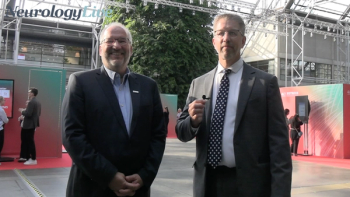
The chief medical officer at Immunic provided clinical insight on the dual mechanism of action of vidofludimus calcium, and how its positioned as a treatment option across all MS subtypes. [WATCH TIME: 3 minutes]

A duo of experts talked about a positive phase 2 trial of vidofludimus calcium, demonstrating reductions in serum neurofilament light levels and potentially slowing brain atrophy in patients with progressive multiple sclerosis. [WATCH TIME: 4 minutes]
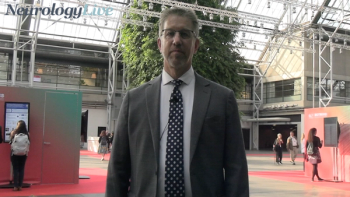
The staff neurologist at the Mellen Center for Multiple Sclerosis at Cleveland Clinic talked about a promising therapy that slows the progression of disability in non-relapsing secondary progressive multiple sclerosis. [WATCH TIME: 2 minutes]
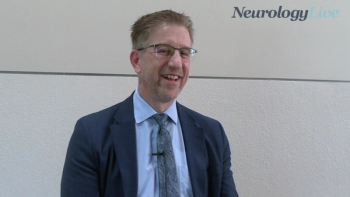
The staff neurologist at the Mellen Center for Multiple Sclerosis at Cleveland Clinic talked about findings from an interim analysis of the phase 2 CALLIPER trial assessing vidofludimus calcium in progressive multiple sclerosis. [WATCH TIME: 4 minutes]
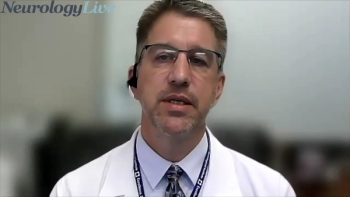
The vice-chair for research at Cleveland Clinic’s Neurological Institute discussed the way therapies are currently assessed for progressive MS and the need for disease-specific biomarkers. [WATCH TIME: 3 minutes]
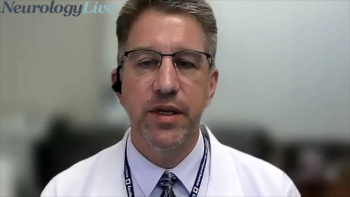
The vice-chair for research at Cleveland Clinic’s Neurological Institute provided commentary on the expanded research of GFAP in multiple sclerosis and whether certain biomarkers may predict treatment response. [WATCH TIME: 8]
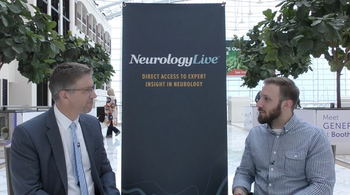
Robert Fox, MD, who presented the DISCO-MS study results at the CMSC 2022 Annual Meeting, offered his closing thoughts on the data and the take-home messaging for clinicians.

Robert Fox, MD, offered perspective on data from the DISCO-MS study of disease-modifying therapy discontinuation in patients with multiple sclerosis and how it compares with day-to-day clinical practice.

Robert Fox, MD, shared the details of the DISCO-MS study of disease-modifying therapy discontinuation in patients with multiple sclerosis, presented at the CMSC 2022 Annual Meeting.
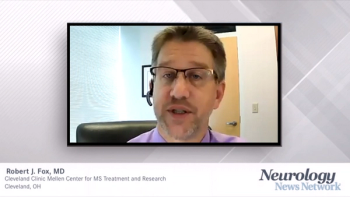
An expert provided thoughts on the state of multiple sclerosis research, where the efforts have been directed recently, and areas that need increased focus.

An expert discussed the ways the multiple sclerosis community can create change and ultimately improve education on cannabis use.
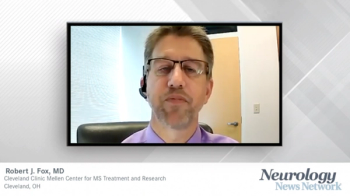
An expert provided context on the need to improve awareness and education on cannabis for patients with multiple sclerosis.
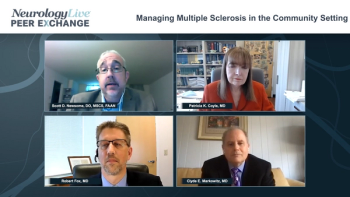
Advice to community physicians and neurologists who play a role in caring for patients with multiple sclerosis in community practices on optimizing therapy with high-efficacy and newer treatment options.

Gaps in care that neurologists experience when treating patients with relapsing-remitting multiple sclerosis and considerations for recommending lifestyle modifications to help manage symptoms.
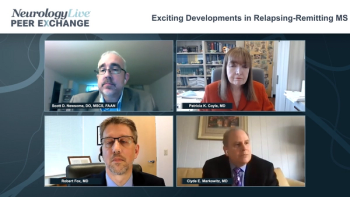
Exciting strategies and biomarkers being investigated to improve the evaluation and treatment of patients with relapsing-remitting multiple sclerosis.
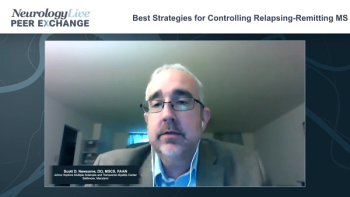
Drs Patricia K. Coyle and Robert Fox comment on approaching multiple sclerosis relapses as early as possible with high-efficacy therapy.
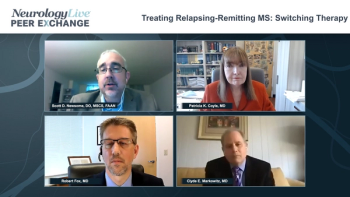
Factors that may warrant a switch in therapy to treat relapsing-remitting multiple sclerosis.
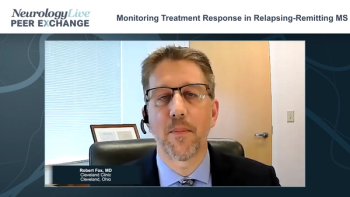
Recommendations regarding how to monitor patients who receive therapy for relapsing-remitting multiple sclerosis and to conduct repeat imaging assessments appropriately.
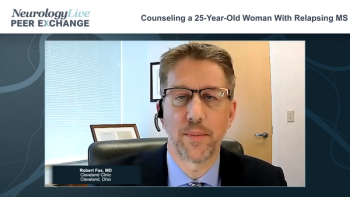
Factors that impact treatment selection for a 25-year-old woman who presents with relapsing multiple sclerosis, including the patient’s interest in becoming pregnant.
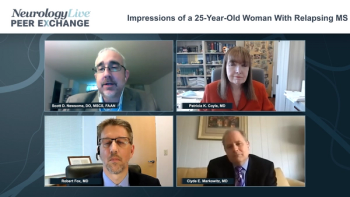
Clyde E. Markowitz, MD, reacts to how he would manage a 25-year-old woman who presents with 2 weeks of progressive left-sided monocular vision loss and pain with eye movement, but reports no other symptoms or significant history.
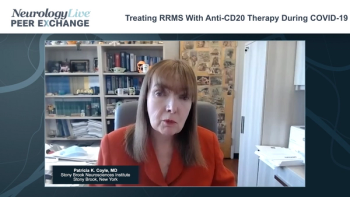
Important considerations regarding the use of anti-CD20 therapies such as ofatumumab to treat relapsing multiple sclerosis during the COVID-19 pandemic and strategies that can help neurologists talk with patients about drug use and COVID-19 vaccinations.
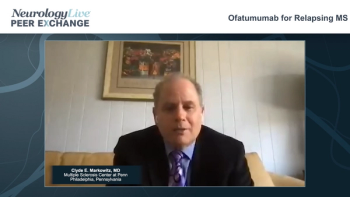
The rationale for treating patients with relapsing multiple sclerosis with ofatumumab based on data revealed by the ASCLEPIOS I and ASCLEPIOS II trials.
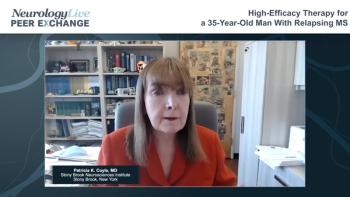
Implications for initiating treatment with a high-efficacy therapy for a 35-year-old man who presents with progressive numbness and weakness in his left arm and leg.
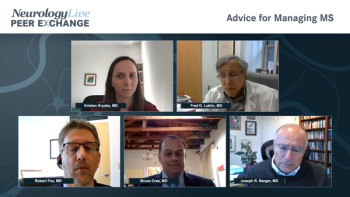
Joseph R. Berger, MD, and Fred D. Lublin, MD, offer advice to community physicians and neurologists in managing patients with multiple sclerosis.
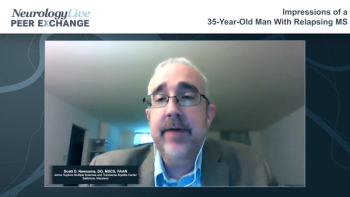
Impressions of exam results and the prognosis for a 35-year-old man who presents with progressive numbness and weakness in his left arm and leg.
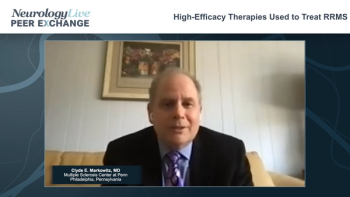
An overview of high-efficacy therapies available to treat patients with relapsing-remitting multiple sclerosis.

The Vice-Chair for Research at the Cleveland Clinic Neurological Institute discussed his team’s efforts to find the minimally effective dose of IMU-838.
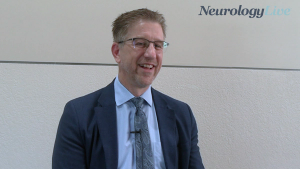
Published: March 3rd 2024 | Updated:

Published: April 30th 2021 | Updated:
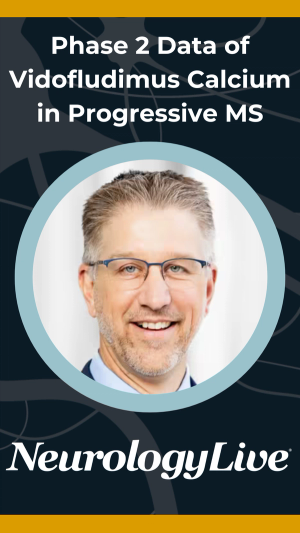
Published: January 8th 2026 | Updated:

Published: May 8th 2021 | Updated:

Published: January 7th 2026 | Updated:
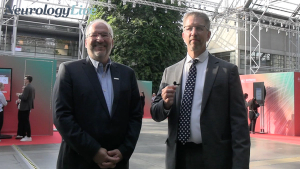
Published: October 25th 2024 | Updated: